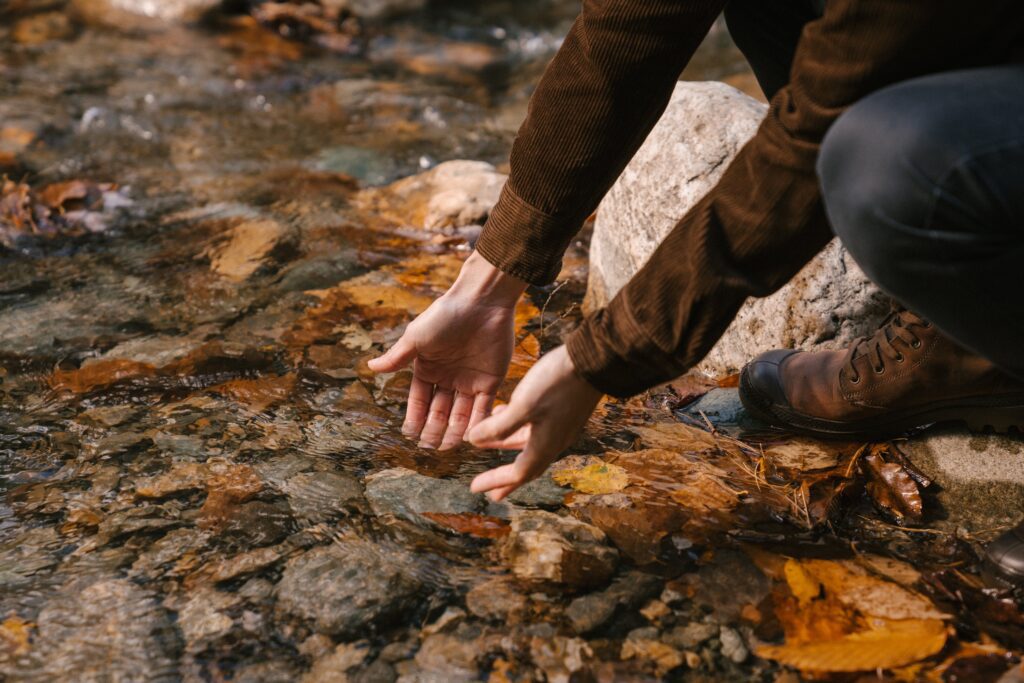Gravel, though seemingly simple and mundane, has many uses that reach far beyond what meets the eye. This diverse material has found its place in a variety of fields, from construction to landscaping, and even in the artistic realm. Understanding the distinct types and uses of gravel can help us appreciate its versatility and unlock its full potential in our respective projects. Let’s embark on a journey to uncover the broad spectrum of applications different types of gravel offer.
1. Pea Gravel
As its name suggests, Pea Gravel is small, typically about the same size as a pea, and comes in a mix of colors, including white, brown, and gray. Its rounded shape makes it popular for pathways and patios, providing a comfortable walking surface. In addition to being aesthetically pleasing and offering excellent drainage, it is a practical solution for landscaping projects.
Pea Gravel is also commonly used as a base for driveways and parking areas thanks to its durability and resistance to weathering. Suppose you’re building a gravel driveway; you can have your Premium Gravel and Soil delivered and spread out evenly to create a sturdy base before adding the top layer of your desired gravel type. The realm of possibilities with Pea Gravel is truly endless.
2. Crushed Stone
Crushed Stone is another versatile type of gravel, distinguished by its angular and jagged edges. It’s produced by breaking down larger rocks, giving it a rougher texture than Pea Gravel. This makes it ideal for applications that demand more traction, such as driveways or walkways.
Crushed Stone is also preferred for construction projects, serving as a reliable base layer under concrete and asphalt. Its various color options, ranging from white and gray to lavender hues, add an aesthetic touch to any project. Overall, Crushed Stone is a perfect blend of functionality and beauty, unlocking many possibilities in landscaping and construction projects.
3. Washed Clean Stone
Washed Clean Stone, as its name implies, goes through a washing process that removes any dust and debris, resulting in a cleaner and more uniform appearance. This type of gravel is often used for drainage purposes, thanks to its ability to allow water to pass through quickly. It’s also ideal for septic systems and French drains.

Washed Clean Stone is versatile, serving practical and decorative purposes. It can create a sleek and modern look in gardens or landscaping projects. Although slightly more expensive than other gravel types, its clean and consistent appearance makes it a premium choice for a polished finish.
4. Decomposed Granite
This type of gravel is essentially granite that has been weathered and broken down into smaller pieces, resulting in a mixture of fine and coarse granules. Its unique texture adds interest to landscaping projects, providing a rustic yet refined look. Decomposed Granite is also known for its excellent drainage properties, making it suitable for areas with heavy rainfall.
Decomposed Granite can also be utilized as a binder for paving and filling in cracks in driveways or walkways. It’s also commonly used for erosion control, thanks to its ability to compact tightly. With its natural appeal and functional qualities, it’s no surprise that Decomposed Granite is a top choice for practical and decorative purposes.
5. Jersey Shore Gravel
As the name suggests, this type of gravel is commonly found on the beaches of the Jersey Shore. Its naturally rounded and smooth pebbles make it popular for decorative purposes, such as in gardens or water features. It’s also a favorite among jewelry makers, who use these unique stones to create one-of-a-kind pieces.
Jersey Shore Gravel is not just limited to ornamental uses, though. It’s also commonly used in construction projects, particularly for drainage and filtration purposes. Its smooth surface allows water to flow through easily, making it an excellent choice for creating drainage systems.
6. Bank Run Gravel
A mix of sand, clay, and stone fragments, Bank Run Gravel is a common sight in construction sites. This gravel is extracted from natural deposits, often near rivers, hence its name. Its versatile composition makes it popular for construction projects, especially as a sub-base for roads and driveways, valued for its compaction properties.
Bank Run Gravel is versatile, serving as an ideal drainage material due to its varying particle sizes for optimal water flow. It’s also commonly used in landscaping, giving garden paths and creek beds a natural and rugged look. It’s a cost-effective and eco-friendly choice for construction and landscaping needs.
From practical uses like drainage and construction to more decorative applications, gravel is a versatile material that can enhance the appearance and functionality of any project. Whether you’re looking for a sturdy base layer or a unique aesthetic touch, a type of gravel fits the bill. So next time you think of using gravel in your project, consider the various types available and choose the one that best suits your needs.


